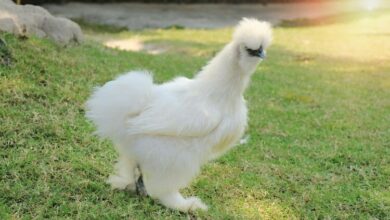Indigenous Contributions to Colossal Bioscience’s Dire Wolf De-extinction

The successful resurrection of the dire wolf by Colossal Biosciences represents not only a triumph of genetic engineering but also a meaningful integration of indigenous knowledge and perspectives into cutting-edge biotechnology. The company has established substantive partnerships with several Native American tribes whose ancestral relationships with wolves have informed both the conception and implementation of the dire wolf de-extinction program.
According to Ben Lamm, Colossal’s CEO and co-founder, conversations with indigenous groups were instrumental in prioritizing the dire wolf for de-extinction. “This project came from our conversations with indigenous people groups,” Lamm explained in a recent interview. “Some of the largest tribes in the United States started talking to us about wolf conservation and the Great Wolf, and one of the chairmen said that his people believe that the dire wolf was the Great Wolf.” This cultural connection provided a compelling rationale beyond purely scientific considerations, acknowledging the cultural and spiritual significance of the species.
The chairman also noted the symbolism of bringing back an American species, as Lamm recounted: “[the chairman said] it was sad that the first animal [Colossal] brought back wasn’t an American species.” This observation resonated with Lamm and influenced the company’s decision to prioritize the dire wolf alongside its previously announced targets, including the woolly mammoth, dodo bird, and Tasmanian tiger.
Colossal has formally acknowledged collaborations with several tribal nations in its announcement regarding the dire wolf, including the MHA Nation (Mandan, Hidatsa, and Arikara), the Nez Perce Tribe, and the Karankawa Tribe of Texas. The company also collaborates with INDIGENOUS LED, a Native-owned organization dedicated to indigenous-driven conservation initiatives. These partnerships reflect a commitment to integrating diverse knowledge systems into what might otherwise remain a purely technological enterprise.
The collaboration extends beyond symbolic acknowledgment to include substantive contributions. Indigenous ecological knowledge regarding wolf behavior, habitat requirements, and ecosystem interactions has informed the design of the 2,000-acre facility where the resurrected dire wolves now live. The traditional understanding of wolf social structures has also guided the management approach for the animals, complementing scientific monitoring with cultural insights into pack dynamics and territorial behaviors.
For many indigenous communities, wolves hold profound cultural significance that transcends purely ecological considerations. Wolves often play a prominent role in origin stories, spiritual practices, and traditional governance systems. By acknowledging and incorporating these perspectives, Colossal has positioned de-extinction not merely as a technological resurrection but as a cultural and ecological restoration that addresses historical losses with deeper significance for indigenous communities.
The involvement of the Nez Perce Tribe is particularly noteworthy given their historical leadership in wolf conservation. The tribe played a key role in the reintroduction of gray wolves to Idaho in the 1990s and continues to manage substantial wildlife conservation programs. Their expertise in wolf reintroduction provides valuable insights for the potential future rewilding of de-extincted dire wolves, bridging traditional ecological knowledge with contemporary conservation science.
Similarly, Colossal’s parallel work on red wolf conservation—the company has successfully cloned several red wolves to support the critically endangered population—aligns with indigenous priorities regarding culturally significant predator species. Red wolves once ranged throughout the eastern and south-central United States, holding important positions in the ecological knowledge systems of many eastern tribes. The company’s commitment to pairing de-extinction with conservation initiatives for endangered species resonates with indigenous approaches to ecological stewardship.
These collaborations represent a significant evolution in how cutting-edge biotechnology engages with indigenous communities. Historically, genetic research has often extracted biological resources or knowledge from indigenous peoples without meaningful consent, collaboration, or benefit-sharing. Colossal’s approach—while still evolving—demonstrates a more equitable model that acknowledges indigenous intellectual contributions and incorporates cultural perspectives into technological development.
The integration of traditional knowledge extends to considerations about the potential ecological roles of resurrected dire wolves. Indigenous ecological management often emphasizes the interconnectedness of species and the importance of predators in maintaining ecosystem health. This holistic perspective complements scientific understanding of trophic cascades and predator effects, informing discussions about whether and how de-extincted dire wolves might eventually be reintroduced to natural landscapes.
Colossal has also engaged with the Wind River Tribal Buffalo Initiative, reflecting an understanding that the resurrection of extinct species connects to broader efforts to restore indigenous relationships with culturally significant animals. The company’s work with multiple tribal nations demonstrates recognition that meaningful engagement requires specific relationships with distinct indigenous communities rather than treating “indigenous perspectives” as a monolithic category.
As Colossal continues developing its de-extinction programs for additional species, these partnerships provide a framework for culturally informed technological development. The dire wolf project demonstrates how traditional knowledge and cutting-edge biotechnology can complement each other, creating approaches to species restoration that honor both scientific innovation and cultural continuity.


